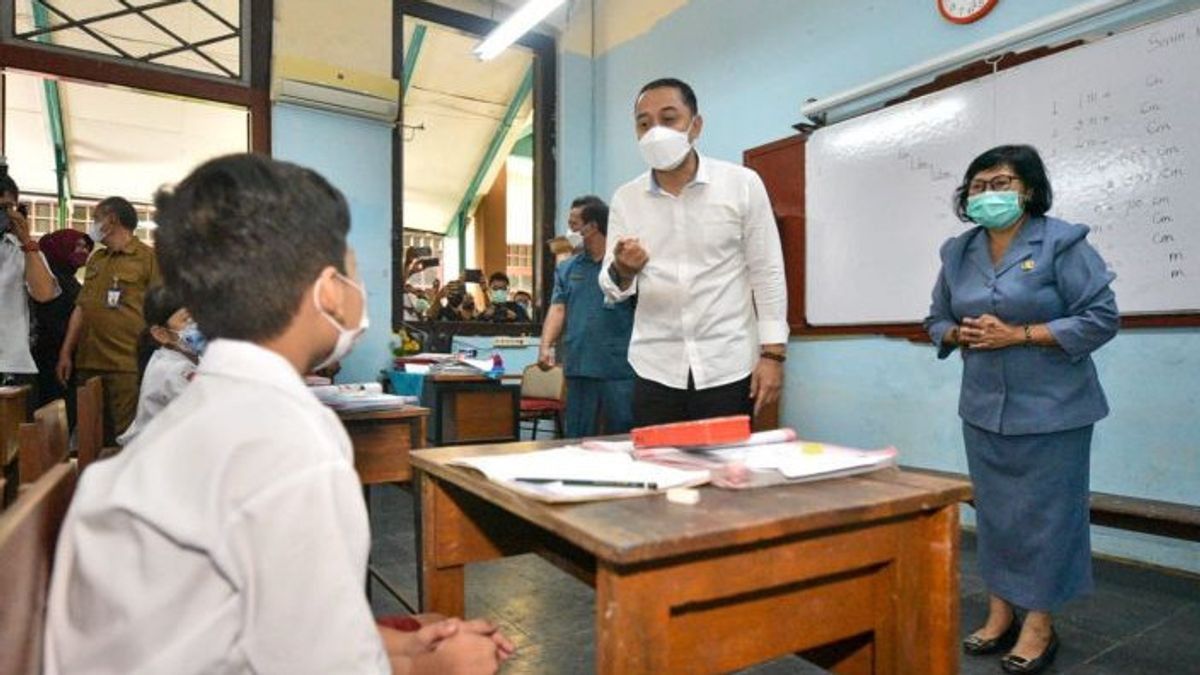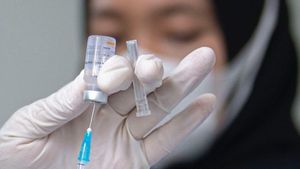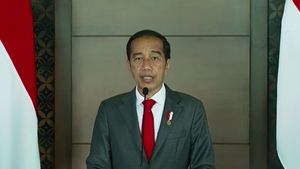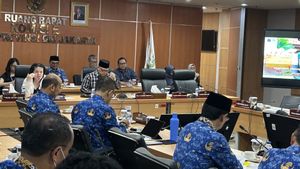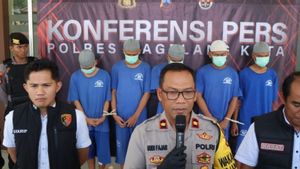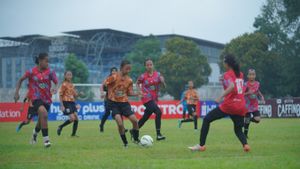SURABAYA - All health service facilities (Fasyankes), especially hospitals and health centers in the city of Surabaya, have increased their supervision and vigilance. This is done to prevent the transmission of acute hepatitis in children whose cause is not known.
Mayor of Surabaya, Eri Cahyadi, said that in addition to improving health care facilities supervision, the role of parents is also considered important in preventing acute hepatitis. Therefore, he invites parents to be more sensitive to the health conditions of their children.
"I thank (ask) for help from parents, please take care of their son's health. One of them is if the dolen (plays) is monitored, the food is also monitored, don't be late", said Eri, in Surabaya, Wednesday, May 11.
In addition, Eri also hopes for parents so that when their child experiences symptoms of illness, they are immediately checked. He didn't want that because it was too late to get treatment, the child's illness was getting worse.
"If the children don't feel it, it's moro-moro dadi loro (suddenly sick). So, we really hope for the role of parents to prevent hepatitis", he said.
There are several characteristics of children infected with acute hepatitis, including decreased consciousness, pyrexia (high fever), changes in the color of urine (darkness) and/or stools (pale), Jaundice (a yellowish discoloration of the skin, part of the body) whites of the eyes, as well as the mucous membranes of the child) and pruritis (itching of the skin).
"Another characteristic is arthralgia/myalgia (joint pain or aches). Then nausea, vomiting, or abdominal pain and lethargy, and/or loss of appetite and diarrhea", he said.
Meanwhile, the Head of the Surabaya City Health Office, Nanik Sukristina, said that until now there have been no cases of acute hepatitis found in Surabaya. Even so, all health facilities have increased their efforts and preparedness to be aware of these potential cases.
"Until now in the city of Surabaya there has been no report regarding the discovery of the case", said Nanik.
The number of efforts to increase early awareness at each health facility in Surabaya has been maximized. For each hospital, the Surabaya Health Office requested that all cases of acute jaundice syndrome have no clear cause and be handled according to standard operating procedures and laboratory tests.
"Then, carry out a Hospital Record Review (HRR) on Acute Hepatitis of Unknown Etiology since January 1, 2022, and report immediately if there are potential case findings according to the indications of the case", said Nanik.
SEE ALSO:
Meanwhile, for each Puskesmas (public health center), the Head of Health Office requested that all of them carry out the strengthening of Communication, Information and Education (KIE) to the entire community. Also, prevention efforts through Clean and Healthy Behavior (PHBS) are consistent in daily activities and the living environment.
"In addition, she also appeals to the entire community to immediately access the health facilities (local health centers) if they experience jaundice syndrome", she said.
Not only that, but the Health Office also asked every Puskesmas to monitor and report cases of acute jaundice syndrome regularly through the Early Alert and Response System (SKDR), with symptoms characterized by icteric or yellow skin and sclera and dark urine that appeared suddenly.
This includes instructing all Puskesmas to strengthen surveillance networks across programs and sectors in their respective work areas. "Immediately provide notification (report via SKDR) if there is an increase in cases of acute jaundice syndrome or case findings to the Surabaya City Health Office", she said.
However, the Head of Health Office appealed to the public to remain calm and be careful. As a precautionary measure, he advised the public to consistently apply PHBS in their daily activities and their living environment.
"That is, by washing hands and drinking clean boiled water. Then, eat clean and fully cooked food, throwing feces and/or disposable diapers in place. Then, using separate eating utensils and wearing masks and keeping a distance", she said.
The English, Chinese, Japanese, Arabic, and French versions are automatically generated by the AI. So there may still be inaccuracies in translating, please always see Indonesian as our main language. (system supported by DigitalSiber.id)
